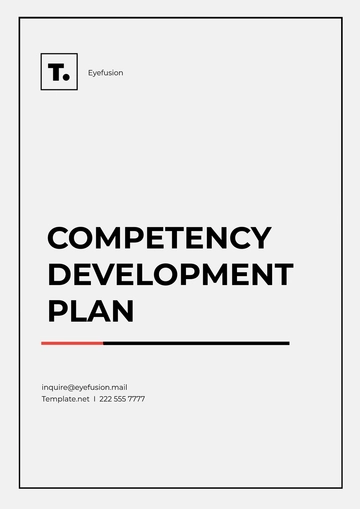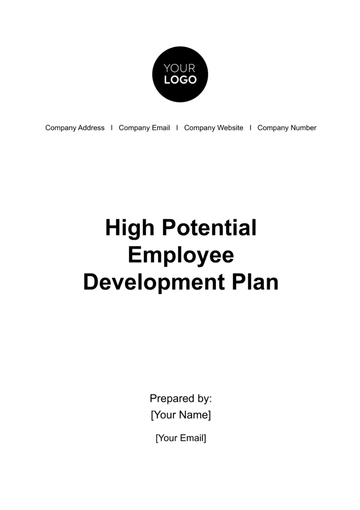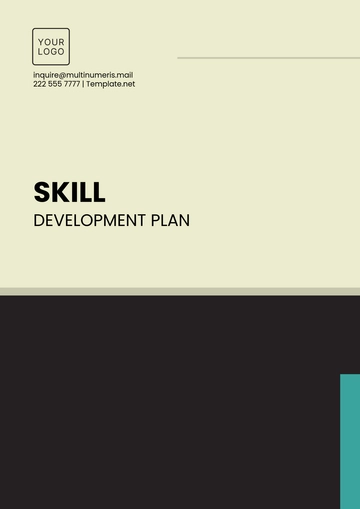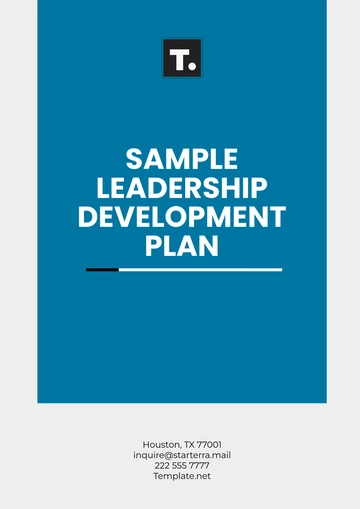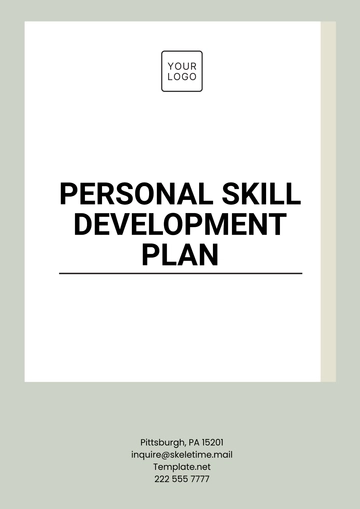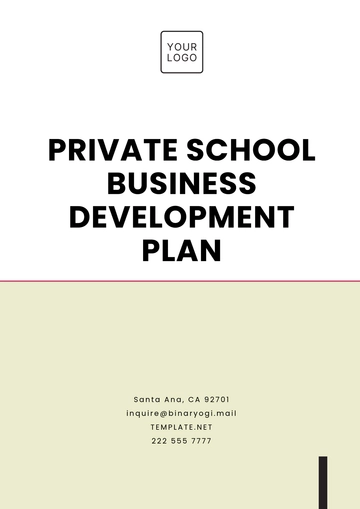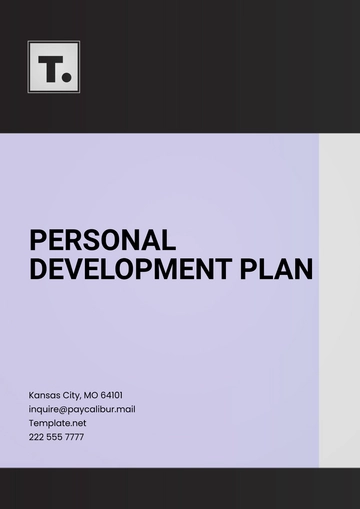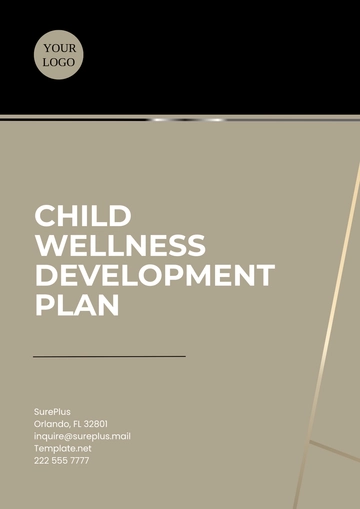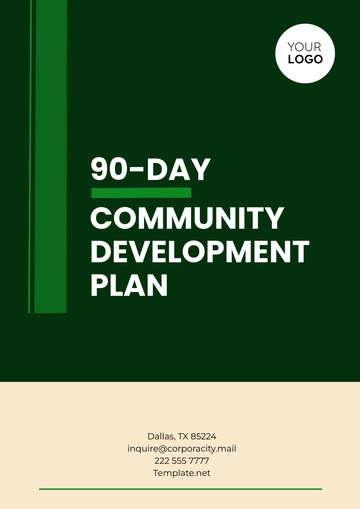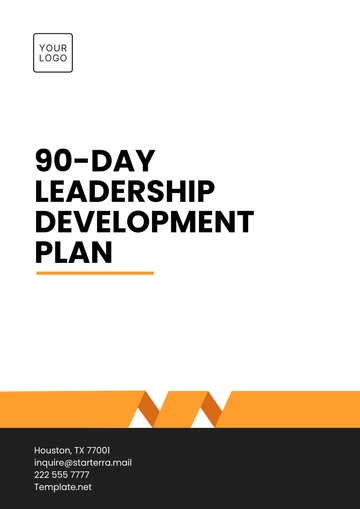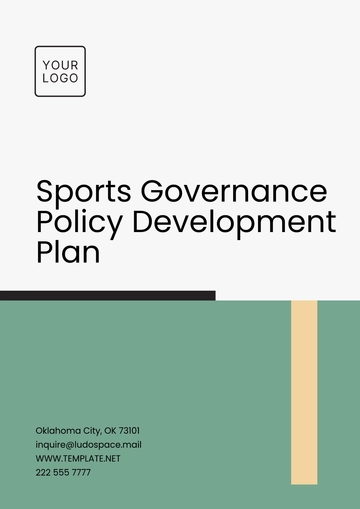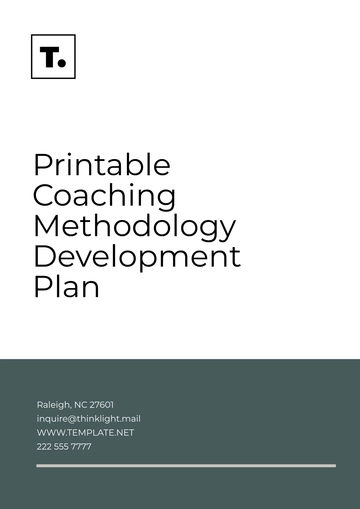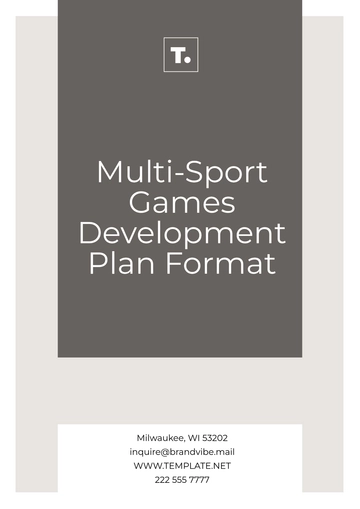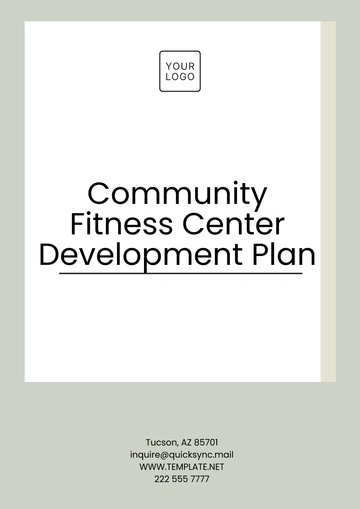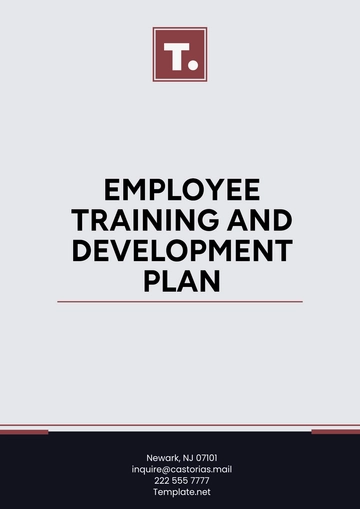Free Operations Professional Development Plan
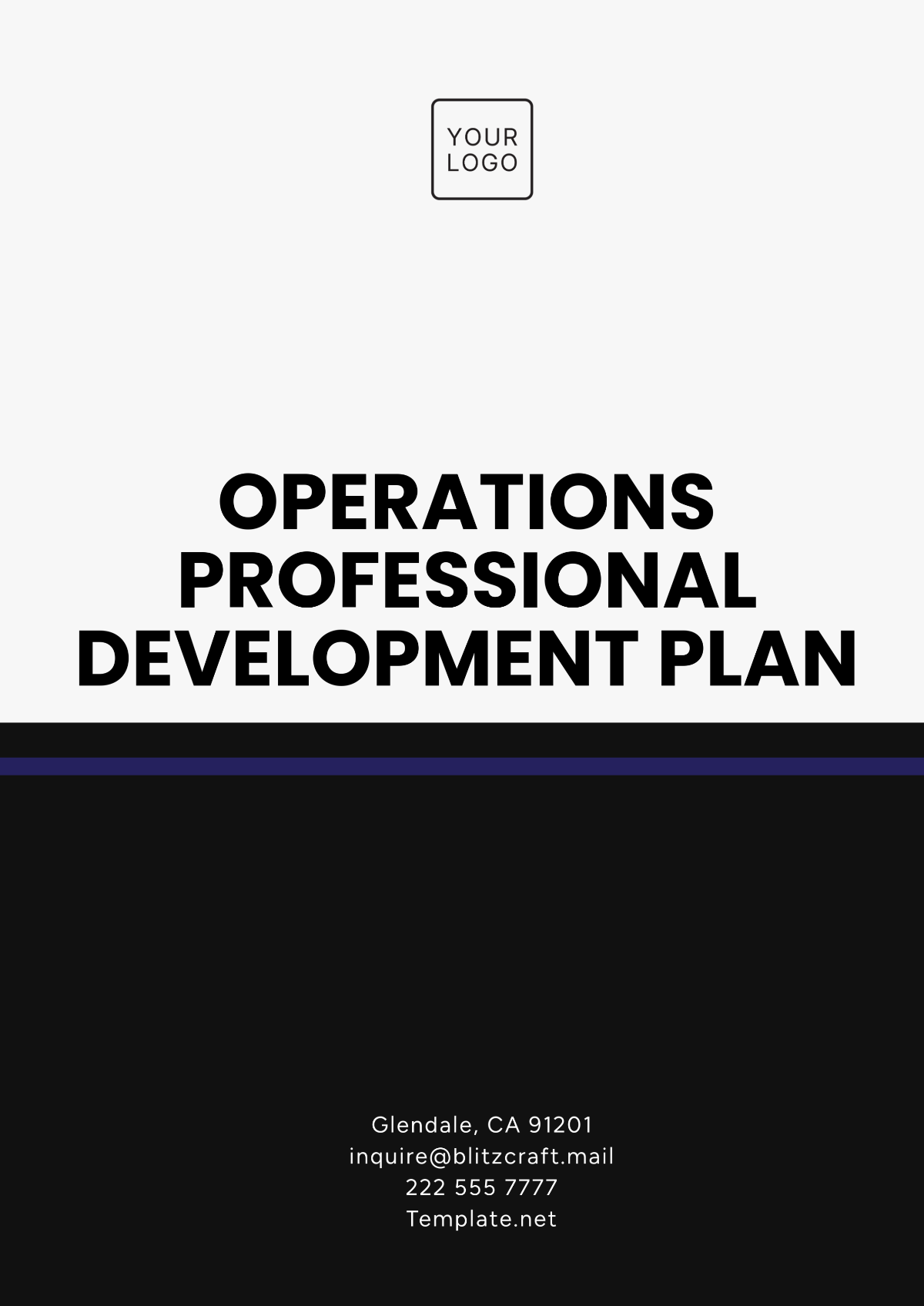
Prepared By: | [Your Name] |
Company: | [Your Company Name] |
Date: | [Date] |
1. Personal Analysis
The first step in the Operations Professional Development Plan (OPDP) is to conduct a thorough evaluation of your personal strengths, weaknesses, skills, and competencies within your current operations role. This analysis will serve as the foundation for identifying areas that require growth, development, and improvement. A clear understanding of these factors ensures the creation of realistic and achievable goals that align with both personal and organizational objectives.
2. Objectives Definition
Based on the outcomes of the personal analysis, clear, concise, and achievable goals should be set. These goals will serve as a guide for your professional growth, focusing on enhancing the skills, knowledge, and competencies required for success in operations. The objectives should be SMART: Specific, Measurable, Achievable, Relevant, and Timely.
Example Objectives and Expected Outcomes
Objective | Expected Outcome | Timeline |
|---|---|---|
To improve project management skills | Enhanced ability to oversee operations projects from inception to completion | 6 months |
To enhance knowledge of the latest operations technology | Mastery of modern tools and platforms for efficient operations management | 3-6 months |
To develop leadership skills | Improved team productivity, motivation, and leadership effectiveness | 6 months |
To improve communication techniques | Clearer, more effective conveyance of ideas, strategies, and team updates | 3 months |
To master data analysis skills | Ability to make effective, data-driven decisions for operational improvements | 6 months |
3. Learning Resources
To achieve these objectives, various learning resources should be identified, ranging from online courses and workshops to webinars, industry seminars, and books. Resources should be prioritized based on their relevance to each specific objective. Some suggestions include:
Project Management: Project Management Professional (PMP) certification or specialized courses such as Agile or Scrum methodologies.
Operations Technology: Online training for specific tools like ERP systems, Lean Six Sigma certifications, or courses on new technologies like automation and AI for operations.
Leadership: Leadership and management workshops or executive coaching.
Data Analysis: Courses on Excel, Tableau, or business intelligence software.
Communication: Workshops on public speaking, negotiation, or business writing.
4. Mentoring and Networking
Seeking guidance from mentors within the organization or industry can significantly enhance your professional development. Mentors offer valuable insights into best practices, industry trends, and career growth strategies. In addition to mentorship, actively networking with industry professionals at conferences or through online communities can open up opportunities for knowledge exchange, collaboration, and exposure to new methodologies.
Mentorship: Regular one-on-one meetings with a senior leader or expert in operations will provide feedback, advice, and growth strategies.
Networking: Attending industry events or participating in professional groups and online forums to stay updated on industry trends and broaden your professional connections.
5. Regular Self-Assessment
A periodic review of progress against set objectives is vital for determining the effectiveness of the development plan. This review process helps identify whether learning strategies are successful or need adjustments, ensuring the individual remains on track. A regular self-assessment can be conducted monthly or quarterly, comparing progress against the initial goals and making necessary changes to the development plan.
6. Development of Soft Skills
While technical expertise is essential in operations roles, soft skills such as leadership, communication, and problem-solving are equally important for effective team management and overall career growth. Focus on developing these skills alongside technical competencies. This can include:
Leadership: Participating in leadership courses, taking on mentoring roles, or leading cross-functional teams.
Communication: Attending communication workshops or engaging in team-building activities to practice active listening and presentation skills.
Problem-solving: Taking part in problem-solving workshops or tackling complex business challenges through real-world case studies.
7. Implementing Knowledge in Projects
The practical application of new skills and knowledge is essential for reinforcing learning. By integrating newly acquired skills into ongoing or upcoming projects, you can refine your abilities while also contributing to the organization's success. Setting specific projects or goals where new skills can be tested ensures hands-on experience that accelerates learning and mastery.
8. Making Improvements in Business Processes
Once new skills are implemented, they can be used to identify inefficiencies within existing business processes and propose solutions. This might involve process mapping, identifying bottlenecks, or introducing automation tools to optimize workflows. The effectiveness of these changes should be measured through key performance indicators (KPIs), and any necessary adjustments should be made for continuous improvement.
9. Seeking Feedback
Actively seeking feedback from managers, peers, and mentors is a vital step in understanding areas of improvement and progress. Constructive feedback helps fine-tune skills and provides new perspectives on performance. This should be an ongoing process, where feedback is gathered regularly (e.g., through quarterly performance reviews or informal check-ins).
10. Reevaluation and Revision of the Plan
As personal and professional growth occurs, the OPDP should not remain static. The plan should be reevaluated periodically—at least annually—based on progress, changes in career goals, or shifts in industry trends. This ensures that the plan remains aligned with evolving skills, aspirations, and challenges.
Conclusion
The Operations Professional Development Plan provides a structured approach to enhancing skills and competencies in operations roles. By setting clear objectives, utilizing relevant resources, seeking mentorship, and regularly reviewing progress, professionals can effectively advance their careers while contributing to organizational success. This plan serves as a dynamic tool, ensuring continued growth and adaptability in an ever-evolving field.
- 100% Customizable, free editor
- Access 1 Million+ Templates, photo’s & graphics
- Download or share as a template
- Click and replace photos, graphics, text, backgrounds
- Resize, crop, AI write & more
- Access advanced editor
Empower your team's growth with the Operations Professional Development Plan Template from Template.net. This editable and customizable template is designed to facilitate the planning and tracking of individual professional development goals. Editable in our Ai Editor Tool, it offers a structured approach to career advancement, ensuring that employees have a clear path to enhancing their skills and contributing to the organization's success with increased competence and confidence.
